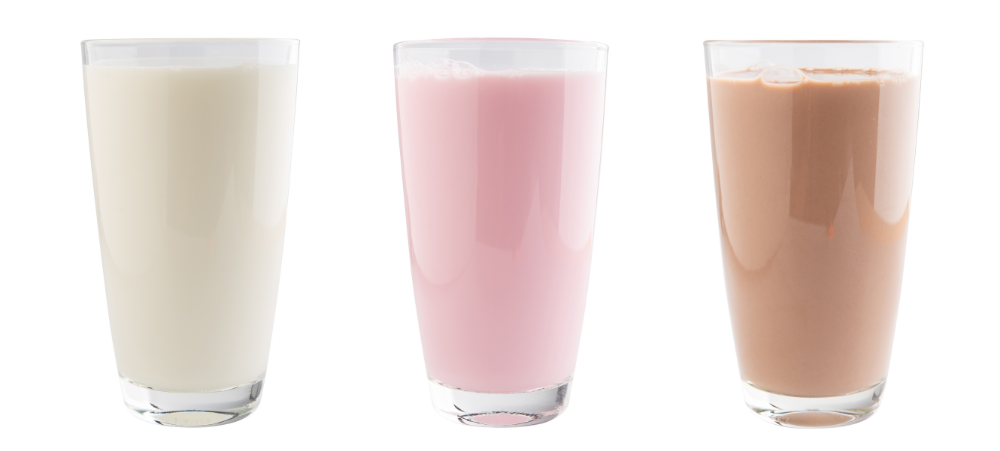Think about the role of your milk children’s diet. Are they getting enough of the essential nutrients needed to grow and stay healthy? When choosing a drink for your child, you should consider both hydration and nutrient content. A sweetened drink that provides nine essential nutrients, like flavoured milk, is a wiser option than a high sugar, low nutrient beverage. Flavoured milk is a tasty, nutrient rich choice for a growing child!
Did you know?
- Flavoured milk contains the same essential nutrients as unflavoured milk, including calcium, potassium, phosphorus, protein, vitamins A and B12, riboflavin and niacin.
- Flavoured milk is liked by children and helps them achieve the requirement of three dairy servings daily.
- Studies have shown that consuming low-fat or fat-free flavoured milk can boost adolescents’ intake of nutrients without adding unnecessary energy to their diets.
Flavoured milk helps meet nutrient needs:
- Maretha Vermaak, registered dietitian at Rediscover Dairy, says: “During adolescence, children often decrease their milk consumption while increasing their intake of soft drinks. Scientific evidence shows that bone fracture risk is three times higher in girls who drink carbonated beverages and seven times greater in physically active girls who consume both carbonated and noncarbonated drinks.”
- Some parents are reluctant to offer children flavoured milk because it is sweetened. However, according to the American Dietetic Association increasing the palatability of nutrientdense foods and beverages by sweetening can promote diet healthfulness. Flavouring and sweetening milk does not take away its nutrients.
When you compare a glass of low-fat milk to that of flavoured milk, the nutrients are still present and the differences between the two are not significant:
Comparison of low-fat flavoured and unflavoured milk

Facts
- Flavoured milk is rich in nutrients, meaning it contains many nutrients in relation to its energy content. Although it is sweetened, it does not add empty kilojoules to the diet.
- Milk – flavoured or unflavoured, full-cream, low-fat or fat-free, provides three of the five nutrients that fall short in children’s diets, namely calcium, potassium and magnesium.
- Studies showed people who drank flavoured milk had higher calcium and nutrient intakes compared with those who did not drink flavoured milk.
- Flavoured milk can increase children’s overall milk consumption.
- The protein in flavoured milk increases satiety, contributing to the feeling of fullness. Research has shown flavoured milk to be a good rehydration and recovery drink after sport.
For more information visit www.rediscoverdairy.co.za or follow Rediscover Dairy on Instagram (rediscoverdairy) or Facebook (RediscoverDAIRY)
Supporting busy Moms who are doing the shopping, filling the lunchboxes, feeding the family and worrying about providing the best nutrition for their kids. Scientifically sound information, underpinned by advice from registered dietitians
Latest posts by RediscoverDairy (see all)
- Why dairy for all-day focus and energy - May 28, 2025
- The power of dairy nutrition for active teenagers - September 19, 2024
- Why dairy has a significant place in sustainable diets - June 7, 2024
Post Views: 36,540





